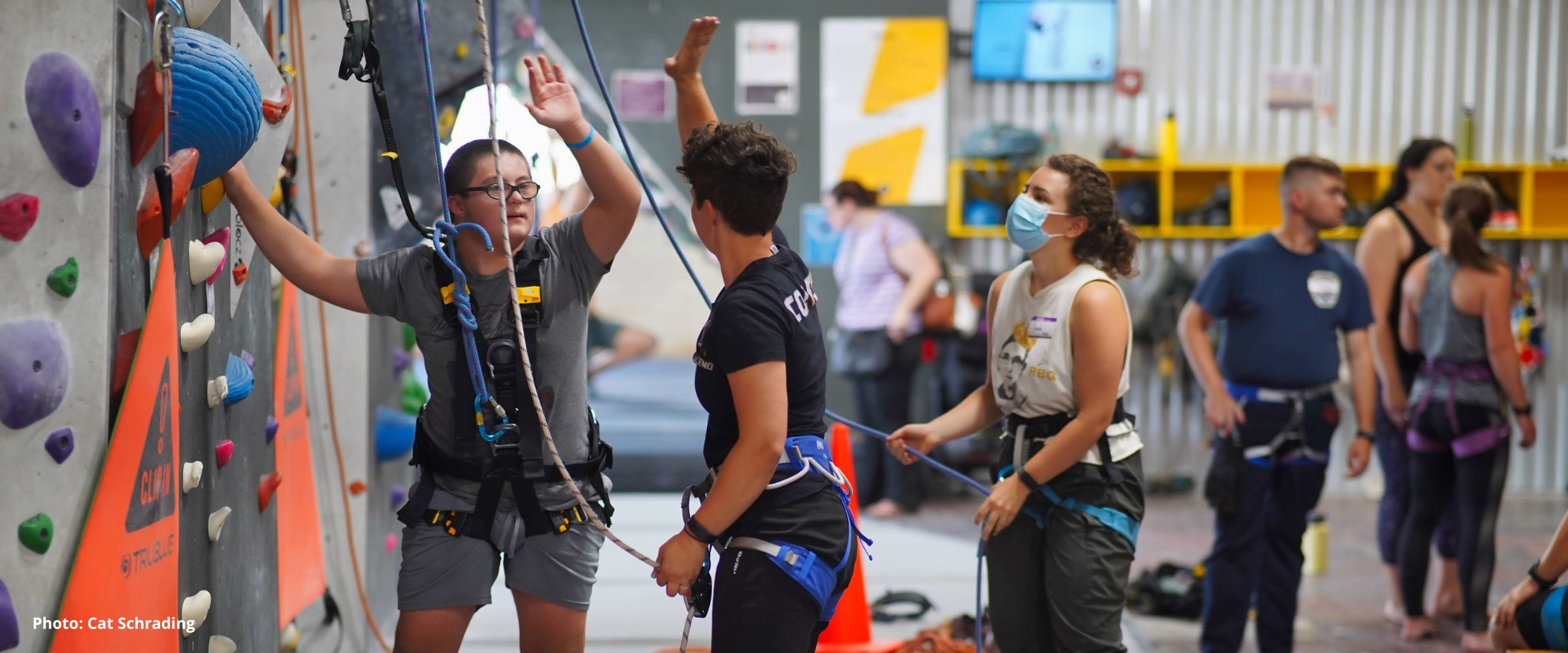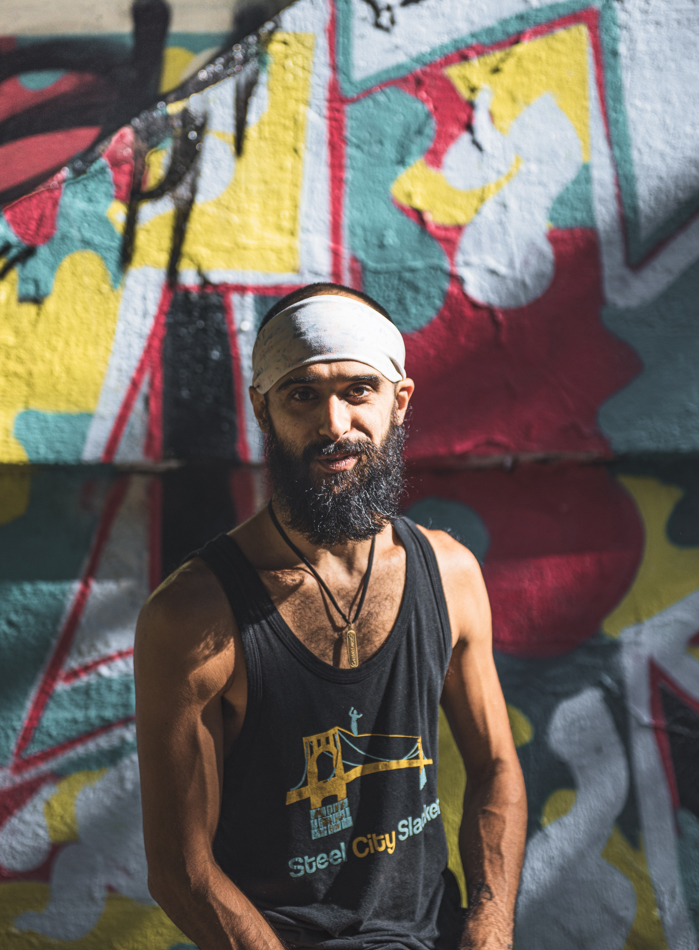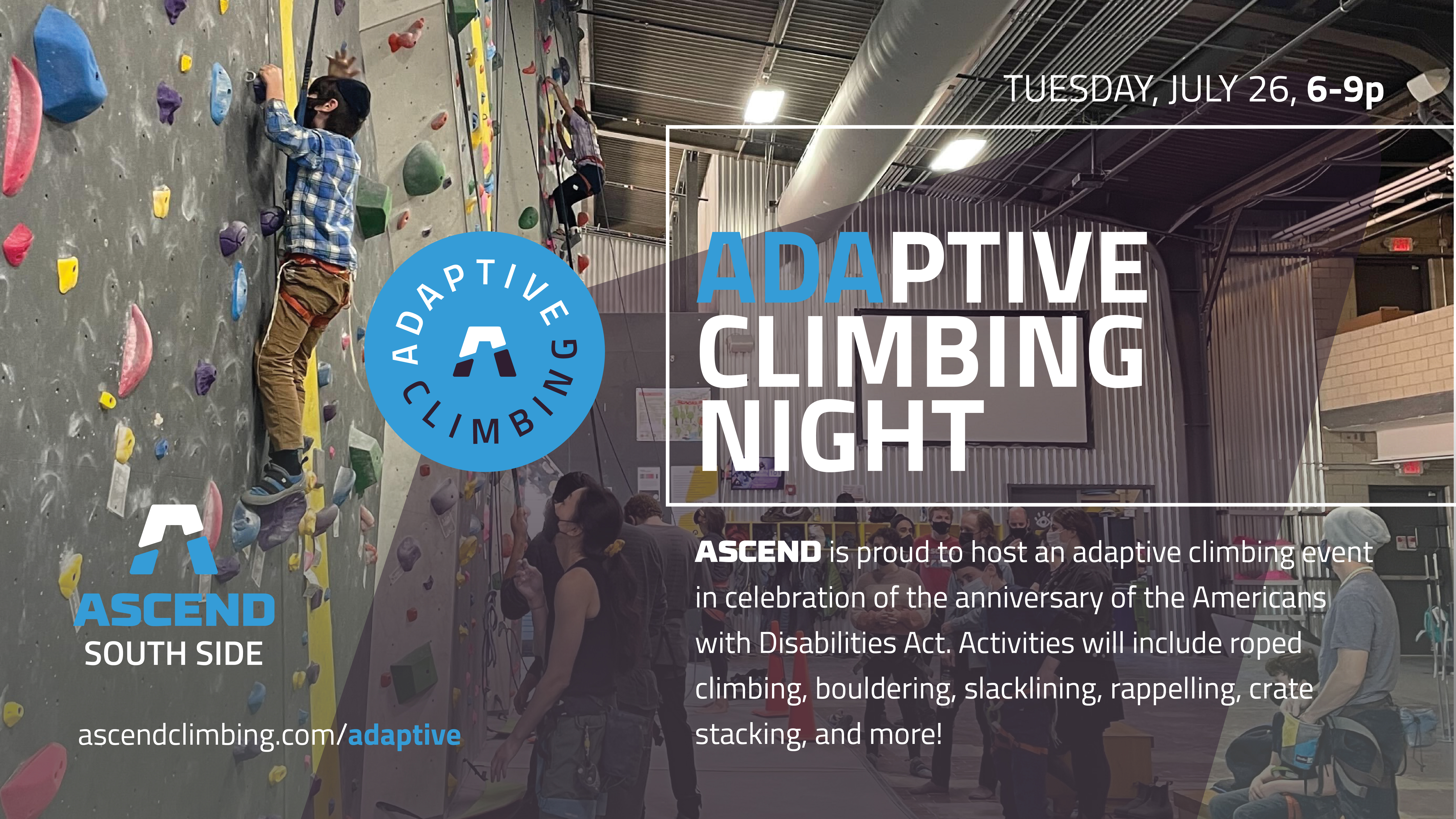Is Adaptive Climbing Part of Your Gym Culture?

When checking my email some weeks ago, a name popped up in my inbox that I did not recognize. It was from a person promoting an accessibility event at their climbing gym. The person is not in management or even a gym employee; she is a volunteer, and she wanted me to know about the great work happening at her local gym.
That is the type of appreciation, the type of community mindset a gym cannot fake. We all want our gyms to be that ‘third place’ for our members where they feel comfortable and accepted. But there are large swaths of the population who do not feel like they belong, so we have to work to make them feel welcome. That’s where the story of Wade Desai and ASCEND in Pittsburgh, Pa. begins.
“Community is one of the easiest forms of virality,” says Wade, the director of climbing at ASCEND in Pittsburgh, Pa.
Wade is thinking about a community being the vehicle, the vessel, for spreading an idea that he, and his entire gym’s staff, are highly passionate about. And that idea is accessibility.
If you’re trying to spread an idea so it’s easy to reach a wider audience, you have to hit on why it’s relatable, applicable, and actionable. In a larger sense, you also need it to be sustainable – so it doesn’t burn itself out.
 |
|
Wade Desai. Photo by Jessie Foster. |
Accessibility issues can be hard to communicate, and hard to relate to. When is the last time you personally thought about how grateful you are that your fingers work? Or that you even have fingers? What about your legs? And these are just physical, which barely dig below the bedrock of accessibility.
But Wade’s team at ASCEND has started this process, and they’ve started it in a unique way.
Using Events as Catalysts
Part of ASCEND is periodically cordoned off so that members can become belay certified to assist people with certain disabilities. After carefully assessing the member’s abilities, they get a belay-certified card indicating their newfound knowledge and even get added to a Slack channel.
The idea of training volunteers is that eventually staff intervention will be less and less, and it will be become part of the culture at the gym.
“The hope is for more and more adaptive climbers to possess these cards themselves so that there is as little barrier to adaptive climbing in our facility as possible,” Wade followed up.
Like how a non-disabled person would look for a catch from someone they don’t know, a person who has a disability could find an individual in the gym who could belay them and have a climbing partner.
“The biggest reason people don’t come back is because they don’t feel like they belong,” says Divya Nateson, a volunteer at ASCEND.
This underscores the importance of making accessibility a focus and core component of your gym's atmosphere.
Divya began volunteering to share her love of climbing and was quickly impressed with how ASCEND, despite its size, prioritizes budgetary decisions to make adaptive climbing a reality. She notes how she’s climbed at four or five gyms of varying sizes and ASCEND program is very impressive.
Building a Program, Not an Event
Sustainability is the main concern when basing concepts or initiatives around events. When the event ends, so does the idea – right?
It doesn’t have to. That’s what sets concepts like this aside from others. The event is a small piece of an infectious cultural shift that the gym is making. Adaptive climbing was and is available before and after the event. The event itself is an opportunity to celebrate, and to spread.
“The biggest goal of this event is awareness,” says Wade. They want the wider gym audience to know that ASCEND does offer this type of support, and more, that they are continuing to do it.
Divya echoes this thought process.
“It’s about changing the way people think about climbing. If you really want to make a difference, you can’t just have a one-off event. You have to always try to improve the system.”
ASCEND had framed the event around the anniversary of the Americans with Disabilities Act. They offered standby volunteers to assist those who needed it, and had roped climbing, slacklining, and even rappelling. Wade described the event as a ‘smashing success’. At present, they have between 50 to 75 certified volunteers with around 40 who show up regularly for events.

Why Does The Idea Spread?
“The biggest thing I’ve gotten out of climbing is learning what other people do. The more diverse of a community you have, the more ideas you have,” says Divya.
On an astronomically smaller scale, it’s like watching someone with a different body type or height complete a route. Think about watching someone who needs an assisted belay use their body in ways you don’t have to. What could you learn? What could you be inspired to try?
And going back to the earlier comments by Wade, it’s about spreading the idea through the community. Training and empowering members of the gym who are not employees give them a purpose and a way to be involved that goes beyond events or even just meeting people. It’s a concept of authority.
“You are going to be given some powers that are above normal,” says Wade of the volunteers. “It spreads in a way that a policy couldn't.”
Not to mention, it deputizes members and allows staff to be more on the management side than on the process side.
Tying It Off
Accessibility is a broad topic that can be difficult to wrap your arms around, especially if you think about it holistically. Where do you even start?
Wade recommends identifying an activity that you want to modify to be inclusive to adaptive climbers and doing research to build a gear kit that accomplishes the goal.
“Safety is 100% on the line, as well as trust, so in my opinion, there is not much margin for experimentation,” Wade followed up.
But there are a number of gyms like ASCEND that have already taken steps to create events, areas, and programs to increase accessibility to climbers, so you don't have to go it alone. View some fantastic resources below and start the process at your gym today.
Getting on a climbing wall is a life-changing experience, and the more people we can get to participate in the sport, the more this amazing sport can grow. So let's take the necessary steps as an industry to remove barriers and provide more opportunities to all.
What You Can Do Right Now |
|
About the Author
 Jake Byk is the marketing coordinator for the Climbing Wall Association. He's an avid hiker, mountaineer, lover of hard-to-reach places and long drives. He's spent four years as a journalist, then a public lands advocate, documenting the Great Plains and Mountain West before joining the CWA.
Jake Byk is the marketing coordinator for the Climbing Wall Association. He's an avid hiker, mountaineer, lover of hard-to-reach places and long drives. He's spent four years as a journalist, then a public lands advocate, documenting the Great Plains and Mountain West before joining the CWA.
